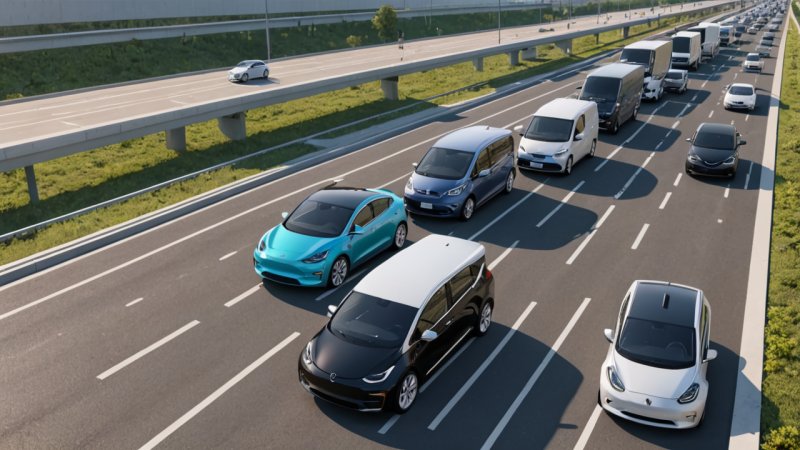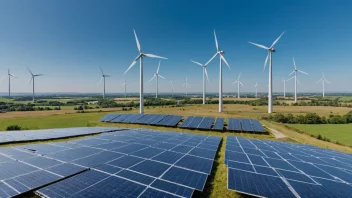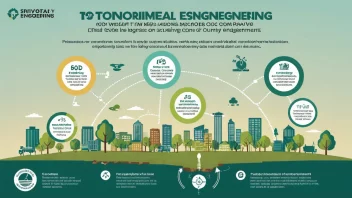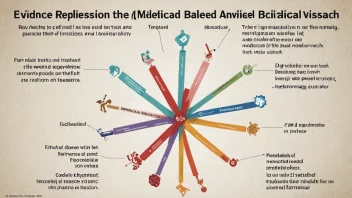Introduction
Transportation engineering has undergone significant transformations in recent years, particularly with the rise of electric vehicles (EVs). This shift is not just about the vehicles themselves but also encompasses the infrastructure, technology, and policies that support sustainable transportation systems. As electric vehicles become more prevalent, understanding the evolution of transportation engineering in this context is crucial. Below are some frequently asked questions about this topic.
What are electric vehicles and how do they differ from traditional vehicles?
Electric vehicles (EVs) are automobiles that are powered entirely or partially by electricity, as opposed to traditional vehicles that rely on internal combustion engines fueled by gasoline or diesel. EVs can be classified into three main categories:
- Battery Electric Vehicles (BEVs): These run entirely on electric power stored in batteries.
- Plug-in Hybrid Electric Vehicles (PHEVs): These can operate on both electric power and gasoline.
- Hybrid Electric Vehicles (HEVs): These use both an electric motor and a conventional engine but cannot be plugged in to charge.
How is transportation engineering adapting to accommodate electric vehicles?
Transportation engineering is evolving in several key ways to accommodate the growing number of electric vehicles:
- Infrastructure Development: Engineers are designing and implementing charging stations across urban and rural areas to ensure accessibility for EV users.
- Smart Grids: The integration of smart grid technology helps manage electricity demand and optimize energy distribution for charging stations.
- Policy and Regulation: Transportation engineers work with policymakers to create incentives for EV adoption and establish regulations that support sustainable transportation.
What role do electric vehicles play in reducing environmental impact?
Electric vehicles contribute to reduced environmental impact in several ways:
- Lower Emissions: EVs produce zero tailpipe emissions, significantly reducing air pollution in urban areas.
- Energy Efficiency: Electric motors are more efficient than internal combustion engines, leading to lower overall energy consumption.
- Renewable Energy Integration: EVs can be powered by renewable energy sources, further decreasing their carbon footprint.
What are the challenges faced by transportation engineers in the EV era?
Despite the benefits of electric vehicles, transportation engineers face several challenges:
- Charging Infrastructure: The development of a comprehensive charging network is crucial to support widespread EV adoption.
- Battery Technology: Improving battery technology for longer-range and faster-charging capabilities remains a priority.
- Public Awareness: Educating the public about the benefits and availability of electric vehicles is essential for increasing adoption rates.
How are technological advancements influencing the future of transportation engineering?
Technological advancements are shaping the future of transportation engineering in the following ways:
- Autonomous Vehicles: The development of self-driving technology is expected to revolutionize transportation systems and reduce traffic congestion.
- Data Analytics: Big data and analytics are being used to optimize traffic flow and improve transportation planning.
- Mobility as a Service (MaaS): Integrating various transportation modes into a single accessible service is changing how people think about mobility.
What is the future outlook for transportation engineering in relation to electric vehicles?
The future of transportation engineering in the age of electric vehicles looks promising. As technology continues to advance, we can expect:
- Increased Adoption: A rise in EV adoption rates as infrastructure improves and technology becomes more accessible.
- Innovative Solutions: Ongoing innovations in battery technology, charging solutions, and smart transportation systems.
- Environmental Benefits: Continued reduction in greenhouse gas emissions and improved air quality in urban areas.
Conclusion
The evolution of transportation engineering in the age of electric vehicles is a fascinating and dynamic topic. As we navigate through the challenges and opportunities presented by this shift, it is clear that the future of transportation will be more sustainable, efficient, and technologically advanced. Understanding these changes is essential for both professionals in the field and the general public as we move towards a greener future.






